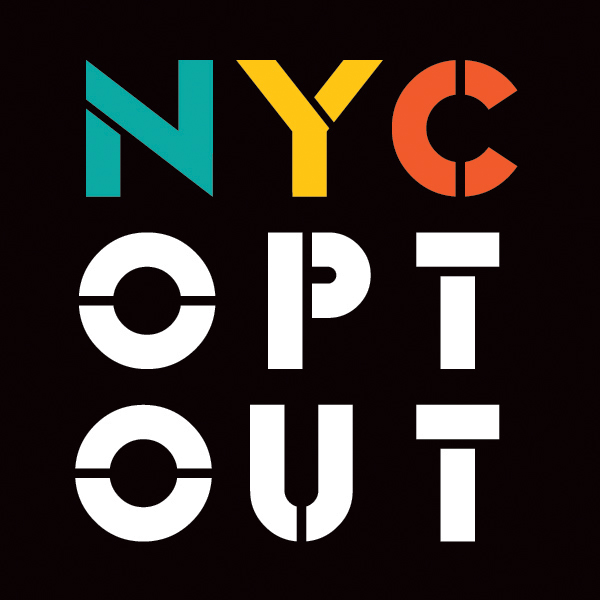PRESS RELEASE
On State Standardized Testing, NYC Opt Out Exhorts Families to DO NOTHING
Challenges NYCDOE to Make Good on “Opt In” Approach—and Go Beyond
“As an educator, I would say to parents, there is an opt-out, and if there is ever a time to consider whether that opt-out makes sense for you, this is the time. We do not want to impose additional trauma on students that have already been traumatized.”—former Chancellor Richard Carranza,
The chancellor of the country’s largest school district made this unprecedented statement the day before he resigned, even before New York state had officially received word that the US Department of Education would deny its request that the state’s 3rd-8th grade tests be waived, as they had been in 2020.
In between then and now two momentous things happened: the Biden administration granted a waiver to the District of Columbia (citing qualifying conditions in DC not dissimilar to those in NYC: a majority of students learning remotely, “blended” students able to access classrooms as infrequently as one day per week, etc), and the new NYC schools chancellor, Meisha Ross Porter, announced that for the first time ever state tests would be administered only to those students whose families opted them in. The default position would be opt out, or, as Brooklyn parent leader Tajh Sutton puts it, “This year we have the option of literally doing nothing to alleviate the stress of these tests on our families and school communities.”
Chancellor Porter’s “opt in” approach is a welcome strategic response to the US Education Department’s unconscionable failure to grant the waiver. But here, in a city where high-stakes testing—with its racist, ableist, and classist connotations—has been baked into the system for decades, we need the NYC DOE to do more.
The precious time that blended students have in buildings should not be squandered on bubble sheets, and certainly not for the spurious reason of needing their answers or guesses as a guide for allocating funding. We already have the data to know where funding is needed: our English Language Learners; students in temporary housing; students with disabilities; low income Black, Latinx and Asian students; undocumented and immigrant students; and children experiencing food insecurity have been left behind for decades.
With coronavirus variants keeping infection rates relatively high, the department needs to be clear and unequivocal in ensuring that families understand that there is no reason to send their children into school buildings to take state tests. The NY State Board of Regents and New York State Education Department were quite explicit about this point in requesting a testing waiver in the first place. Even Ian Rosenblum, the pro-testing bureaucrat at USED who issued the denials, stopped short of ordering remote students back into schools for the sole purpose of sitting for tests.
Here are a just a few of the testing-impacted areas in which the city needs to do more and do better:
ADMISSIONS. The city’s competitive admissions process for middle and high schools makes parents hesitant to skip the tests. “The DOE needs to let families know NOW what the plans are for the next admissions cycle,” says Reyhan Mehran, parent of three students in Brooklyn. “It is wrong that the DOE is silent when parents are misled to believe that their children or their schools will be harmed if they don’t take these tests.”
The admissions process also runs counter to the department’s claims of equity and excellence. “In Brooklyn’s D15, test scores are no longer used in any way for middle school admissions,” continues Mehran, a resident of that district. “And what happened? After a single admissions cycle, the removal of competitive screens improved the diversity of our district’s middle schools. Students who had previously been excluded were admitted.”
COMMUNICATION. The city’s announcement of an “opt-in” policy was not accompanied by a clearly articulated way for schools to get that information to families. Left to their own devices, schools sent out a bewildering array of communications, and in multiple instances failed to indicate that, in contrast to previous years, no negative consequences were attached to choosing not to test. Images of letters and emails posted to social media indicate that at least some schools were not forthright that students were automatically opted out this year, and reports surfaced of administrators asking teachers to provide the names of good testers to “invite” to the exams. Some schools seemed hell-bent on paving the path to opt in. “On April 8 I received a robocall from my daughter’s middle school informing me that I still had until April 15 to opt my child in for testing,” reports Paullette Healy, the parent of a District 20 middle school student. “During that week I had already received six emails about opting her in to the test. This is infuriating considering there are so many other uses that robocall could have been used for. There was an upcoming deadline that Friday for opting your child into blended learning. That could have been a better use. They could have told us there was an update on the P-EBT benefits, and that for parents who have thrown away their cards, here was a number to call to replace those cards in order to feed your family.”
CREATING A NEW NORMAL. As long-time opt out advocate and current city council candidate Johanna Garcia puts it, “This year the inequities are impossible to ignore. So I am asking the mayor and the chancellor to do the right thing. Understand that we must move forward in a different way, and a different way means abandon these tests, and do not retraumatize our children.”
NYC Opt Out is a grassroots coalition of NYC families and educators who are concerned about the impact of high-stakes testing on New York City's schools, children, and teachers. We represent families in schools all over the city and are 100% volunteer-driven, with no corporate, foundation, or union sponsors. @NYCoptout
###




